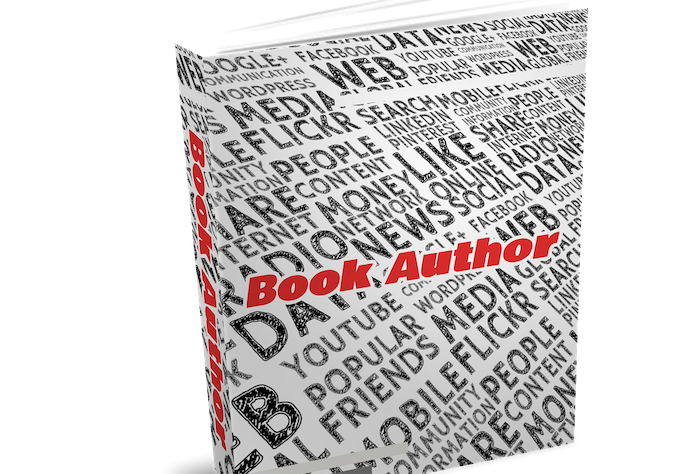Aim Your Story at the National News Media
The PR Rainmaker knows: For maximum success, always start at the top.

Begin at the bottom rung of the news media and work your way to the top. That’s the conventional wisdom most companies follow. PR specialists call this "building credibility."
"We’ll begin with the trade publications and the small newspapers," they say. "Once we build our credibility there, we can move up to the daily newspapers and to large-market television. And if we succeed there, maybe ... just maybe ... we can break in with the national media. This will take years of hard work, but we can get you there if you trust us and do as we say."
Bull.
The PR Rainmaker knows: For maximum success, always start at the top.
Put all of your resources initially into breaking your story in the Big Media. Focus on the national newspapers -- The New York Times, The Wall Street Journal, USA Today, The Los Angeles Times -- and on the regional newspapers that serve the top 20 markets, such as the Boston Globe, the Chicago Tribune or The Dallas Morning News.
There is sound thinking behind this tactic. One story in a major publication will do more for your reputation than will a thousand stories in lesser publications.
Get you name into the Wall Street Journal, and you achieve instant credibility with just about any other media you contact. Gates that were closed to you will suddenly spring wide open.
Why?
The rest of the media hate to admit this, but the major daily newspapers still set the agenda for national debate. If a story appears in the New York Times, then reporters, editors and producers across the nation know that the story has met the most stringent of journalistic standards.
This gives journalists a sense of comfort that most of them secretly crave. Think of it as journalism’s version of The Good Housekeeping Seal of Approval.
For all their bombast about their independence, only a very few reporters, editors and producers are mavericks. Journalists are far more comfortable running in packs than flying solo. They care very much about how they are viewed by their peers. (Thus the obsession with the Pulitzer Prize and other awards.)
Think back to the movie "All the President’s Men," which is a remarkably accurate portrayal of the Washington Post’s efforts to break open the Watergate scandal of the Nixon White House.
There’s a scene midway through the movie where the editors are debating whether to continue the investigation. "If this story is so big," they ask one another, "why are we the only news outlet in the entire nation that is covering it?"
Editors, reporters and producers ask each other this question every day.
If Time magazine is running a cover story about the White House, you can bet the editors at Newsweek and U.S. News are asking each other, "Why didn’t we have a cover story about the White House?"
If CNN sends a reporter to cover a hurricane in Puerto Rico, you can bet producers at CBS, ABC and NBC will ask, "Why don’t we have a reporter in Puerto Rico?"
And if a story appears in a national newspaper, you can bet other news media will at least consider producing their own version of the story. It terrifies them to do otherwise.
Resolve that you will start at the top, then work your way down. Understand that getting that first story in the Big Media will be exhausting and frustrating. But also realize that, once you land your national story, your other PR efforts will become many times more effective.
"But we can’t do that," you may be telling yourself. "My company is too small. We lack the clout to get the Big Media to pay attention to us."
The PR Rainmaker knows: The Big Media care only about the story, not the size of the company behind the story.
Journalists just want a good tale to tell. It doesn’t matter to them whether your company is large or small, whether you are a Nobel laureate or a small-town dogcatcher. They just want a good story.
With some knowledge, skill and creativity, you can provide them with a good story.
Study a week’s worth of the New York Times, The Wall Street Journal and USA Today. Devote a week to watching the networks’ morning and evening news programs as well as their news magazines. Note how often you see, hear and read about companies and individuals you’ve never seen, heard or read about before.
You can be among them. PR Rainmaking will get you there.
Do yourself a big favor. Don’t waste time, energy and money "building credibility" in the minor leagues.
When you’re ready to roll, start at the top.
Read These Next
5 Free Tools to Convert Your Ebook to EPUB and Kindle Formats
When converting your manuscript into ebook formats for your own personal use or sale, there is no excuse for producing a poor quality, poorly formatted file. Free tools are available that can help you create a high-quality, validated ebook file in EPUB or Kinde Format 8 file types.
Maximizing the Benefits of Attending a Book Festival
If you have ever gone to a book festival and found yourself wandering aimlessly, maybe doing some browsing at booths, but you end up thinking that you are missing out on the essence of the event? If this describes your last festival visit, then consider some early planning before your next literary festival
What is a Self-Publisher?
A brief look at self-publishing -- what it is, what it isn’t, and why anyone would be crazy enough to try it.






